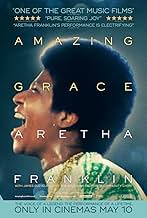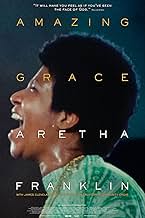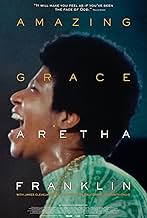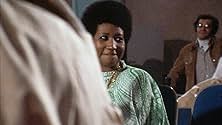Eine Dokumentation über Aretha Franklin mit Chor in der New Bethel Baptist Church in Watts, Los Angeles im Januar 1972.Eine Dokumentation über Aretha Franklin mit Chor in der New Bethel Baptist Church in Watts, Los Angeles im Januar 1972.Eine Dokumentation über Aretha Franklin mit Chor in der New Bethel Baptist Church in Watts, Los Angeles im Januar 1972.
- Auszeichnungen
- 2 Gewinne & 15 Nominierungen insgesamt
- Self
- (Archivfilmmaterial)
- Self
- (Archivfilmmaterial)
- Self - Choir Director
- (Archivfilmmaterial)
- Self - Guitar
- (Archivfilmmaterial)
- Self - Organ
- (Archivfilmmaterial)
- Self - Percussion
- (Archivfilmmaterial)
- Self - Drums
- (Archivfilmmaterial)
- (as Bernard Purdie)
- Self - Bass
- (Archivfilmmaterial)
- Self - The Southern California Community Choir
- (Archivfilmmaterial)
- Self - The Southern California Community Choir
- (Archivfilmmaterial)
- Self - The Southern California Community Choir
- (Archivfilmmaterial)
- Self - The Southern California Community Choir
- (Archivfilmmaterial)
- Self - The Southern California Community Choir
- (Archivfilmmaterial)
- Themselves - The Southern California Community Choir
- (Archivfilmmaterial)
- Self - The Southern California Community Choir
- (Archivfilmmaterial)
- Self - The Southern California Community Choir
- (Archivfilmmaterial)
- Self - The Southern California Community Choir
- (Archivfilmmaterial)
- Self - The Southern California Community Choir
- (Archivfilmmaterial)
Handlung
WUSSTEST DU SCHON:
- WissenswertesDirector Sydney Pollack was totally inexperienced in shooting music documentary and shot without clapper boards snapping shut at the beginning of each take to help synchronize sound and picture in post-production. As a result of this mistake, even after months of work by experts, the 20 hours of footage couldn't be synchronized with the audio tracks. The choir director from the Watts recordings was brought in to try to lip-read the reels, but after months of work, only about 150 minutes of footage had been matched with sound, none of it adding up to a complete, useable song. Deadlines passed as the "Amazing Grace" album came out in June 1972, selling millions with no synergy. In August, Warner Bros. officially wrote off and shelved the movie. Pollack never gave up on the project, but constantly had other commitments. In 2007, dying of cancer, Pollack finally handed the documentary project over to producer and music enthusiast Alan Elliott.
- Zitate
Rev. Franklin: I went in the cleaners one day in Detroit to pick up some clothes, and Aretha had appeared on a recent television show. And she told me, "I saw your daughter Aretha last night." I said, "Yes? How did you like it?" She said, "It was all right. But I'll be glad when she comes back to the church." I said, "Listen baby, let me tell you something. If you want to know the truth, she has never left the church."
- Crazy CreditsThe film concludes with a 1972-era Warner Bros. ending card, even though WB technically no longer has any ties to the film, to suggest how it would have played out had the project been completed and released when initially intended.
- VerbindungenFeatured in Mark Kermode's Secrets of Cinema: Pop Music Movies (2021)
Decades later we learned that it was impossible--with technology available then--to sync up the sound with the film footage and the project had been permanently shelved. The young director, Sydney Pollack, hadn't realized each reel needed a time clapboard for editors to find their way in assembling the footage to properly slate with the live sound recording. Not only that, but Franklin never wanted the film footage to be released (there was heavy post-editing in the audio's final release). So it was with a thunderbolt when we heard people had been working frame by frame to put the sound back in sync with the images (when you watch the film, just imagine what it would be like for an editor to be handed a 10 minute reel and be told "guess where this fits in"; and Pollack used 5 cameras to catch all that was going on with a reported 20 hours of unmarked footage).
It's a miracle to have this film in any form, and not only that but that the director(s) stayed out of the way of what was happening, no fancy edits, or commentary. Nothing but this woman transcending herself and her audience into spiritual ecstasy.
The album only hints at what we finally get to experience. But any performance, much less an entire concert by Ms. Franklin from this era is a gift. She's at her peak and her naturally shy demeanor that masks one of the greatest voices in history peels away and without histrionics or showmanship, she becomes an instrument of her faith. It's exhausting to watch; and, if you're so inclined, transforming.
While the filmmakers handle all of this beautifully, the participants intrude (as they do on the recording), trying to upstage the central reason for this performance. Both the Reverends James Cleveland and her father, C.L. Franklin nearly maul Ms. Franklin either physically or with obsequious lengthy praise. In fairness they have every right to show their pride, but it lessens them. (The choir director, Alexander Hamilton serves the evening much better with his graceful shaping of the choir that's almost a dance but it doesn't distract from the either the soloist or the choir.)
Aretha Franklin, with unparalleled poise and professionalism endures it all without a flinch. She's there to do a job, seems oblivious to the cameras, while using a vocal instrument with a power not seen before or since.
- Michael Fargo
- 22. Apr. 2019
- Permalink
Top-Auswahl
- How long is Amazing Grace?Powered by Alexa
Details
- Erscheinungsdatum
- Herkunftsland
- Offizielle Standorte
- Sprache
- Auch bekannt als
- Amazing Grace
- Drehorte
- Produktionsfirmen
- Weitere beteiligte Unternehmen bei IMDbPro anzeigen
Box Office
- Bruttoertrag in den USA und Kanada
- 4.450.456 $
- Eröffnungswochenende in den USA und in Kanada
- 57.353 $
- 9. Dez. 2018
- Weltweiter Bruttoertrag
- 7.796.112 $
- Laufzeit1 Stunde 29 Minuten
- Farbe
- Seitenverhältnis
- 1.78 : 1
Zu dieser Seite beitragen


























